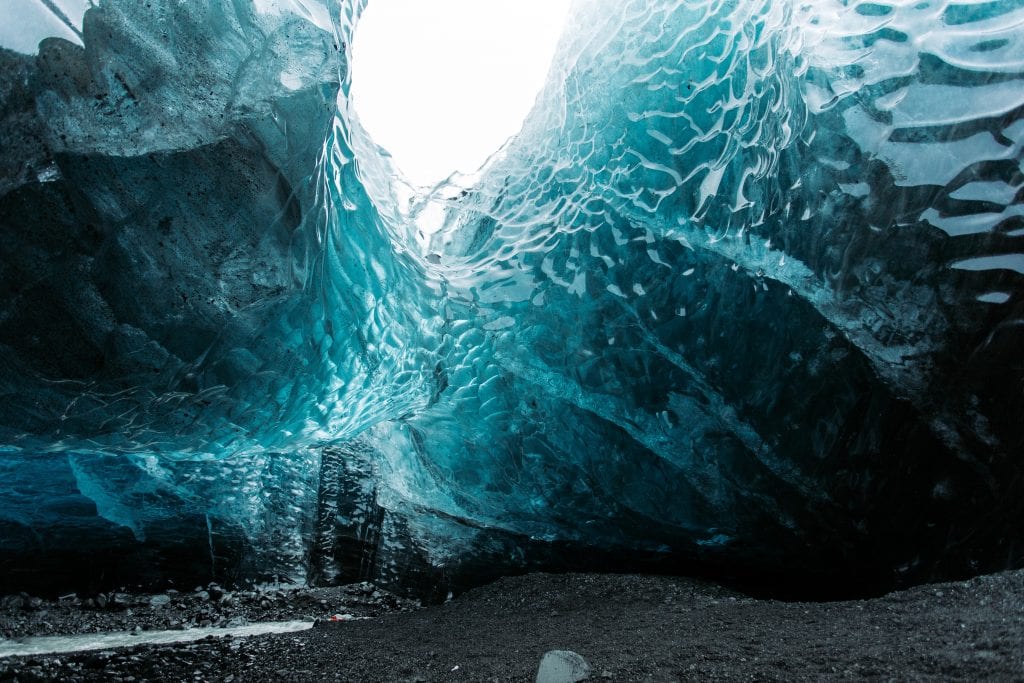TAU CETI PRIME — Federation scientists are keen to begin their explorations of a newly discovered geological and anthropological hotspot beneath the expansive glacier ice caps of Tai Centi Prime n collaboration with the Kaferians.
Beneath the thousands of glaciers covering the landscape of the planet’s mountain regions lies a geological and anthropological mystery Federation scientists have pondered for decades, and Kaferians for as long as their written records extend into history. The Kaferians – an insectoid species and Federation member for many years inhabiting the sister planet Tau Ceti III, or Kohath-Seredi – have welcomed the effort to delve deeper into the planet’s origins.
Unable to scan beneath the vast frozen vistas of oceanic ice developed over many millennia, new leaps in advanced technologies may now make the exploration a reality. Involving a Federation-wide collaboration effort to discover the mysteries of the deep permafrost sheets, using the best in Tellarite and Andorian technologies for the processes of terraforming and ice cutting respectively, scientists and explorers alike are already enthusiastic about the discoveries waiting for them on the continent.
Fossil evidence from earlier excavations on melted ice has showed that there is increasing indications of a pre-civilisation that could have inhabited Tai Centi Prime before the continent submerged into the dry deep freeze and perfectly preserved plant life showing the flash freeze which occurred approximately 60 million years ago. Kaferian scientists have expressed a wide interest in the planet before, but lacked the technology to begin a formative effort.
Presenting her theories of mass extinction and migration of her peoples from the originating planet of Tau Ceti Prime to their home of Kohath-Seredi, Director Sorllaith of the Kaferia Institute of Natural Science garnered much support at the previous New Horizons conference, and has since spoken at the ongoing conference taking place on Deluvia IV, Deluvia System.
“This is an exciting development for our people!” exclaimed Doctor Sorllaith, Director of Science at the Kaferia Institute of Natural Science. “Once the ice caps melted, we discovered beneath a gigantic layer of ancient mud and seafloor, which has perfectly preserved fossils and microfossils that could establish the missing link between the origin of our species and our established a home on Kohath-Seredi. Our excavations have revealed some secrets of our long and incredible past before, but the opportunity to see where we originated from is an incredible breakthrough.”
Applying highly calibrated sensor data from scientific vessels orbiting the planet, loaned by Starfleet Command for the effort, and the sharpest sensor pallets available on the ground, the first discoveries are already beginning to appear.
The task is not an easy one. In some places, the ice extends up as far as five miles from the sea-level and large pieces of the formed sheets are disappearing into the ocean every day. The newly released water has caused the formation of dangerous lakes and rivers across the surface of the planet and crust, directly affecting the settled inhabitants and threatening the scientific outpost on the southern continent.
“There is a delicate balance you have to strike, between how far you can drill into the crust without disrupting the natural order,” explained Doctor Narsh Chashnonch, Chief Researcher for the Tellarite Exploration Taskforce. “We have conducted thorough research already and will continue to do so on the surface before we make any effort to cut through it.”
The exploration team will begin their initial survey and investigation, touching down at the outpost in the south and, utilising specially adapted Argo vehicles on loan from Starfleet, the team have begun preparations to travel across the land to set up their remote field camp amongst the northern ice.
Want to Write Your Own Star Trek Stories?
The Federation News Service is written by members of StarBase 118, a Star Trek play-by-email RPG running since 1994. Join us and create your own adventures in the Star Trek universe — all you need is an email address.
Join StarBase 118 TodayOr explore free Star Trek ebooks written by our community → trekstories.net
Stay Informed with Federation News Service
Subscribe to receive the latest updates from across the Federation.
Comments
comments

